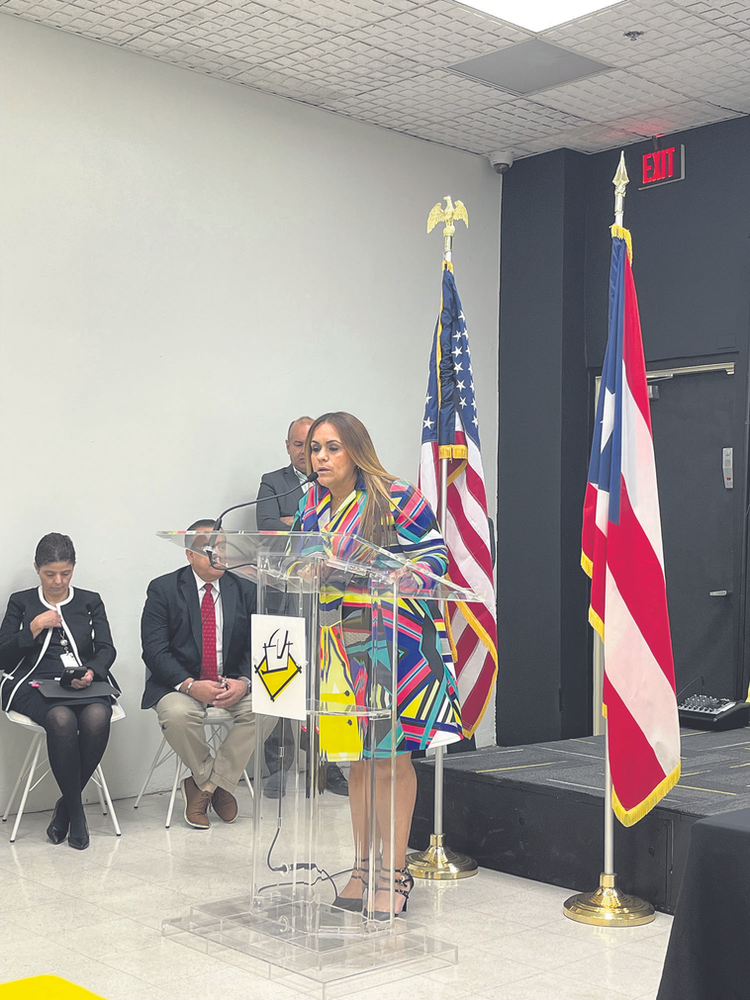
---
On Thursday, State Elections Commission (SEC) Alternate Chairwoman Jessika Padilla Rivera disclosed that an SEC staff member admitted to having shared private and privileged data regarding former prosecutor and political analyst Mayra López Mulero in a WhatsApp group.
“It is accurate, Advance Civil ID details were shared, which is a platform that solely operates with the SEC through voter registration officials; that voter is indeed attorney Mayra López Mulero,” affirmed the SEC representative during a radio segment. “In this regard, we are taking administrative action in accordance with our regulations, [involving] one of our staff members, who regrettably disclosed the attorney’s information by utilizing her privileges to access that platform.”
López Mulero, who recently visited the SEC to update her electoral details, expressed concerns this week that her personal information provided to the SEC was circulated in a forum overseen by supporters of the New Progressive Party (NPP).
Former Senate President Thomas Rivera Schatz dismissed López Mulero’s allegations concerning the exposure of data from her electoral records in the chat as overly dramatic. He urged the SEC chairperson to respond promptly if there exists a confession from an employee regarding the issue, while questioning the underlying motives of López Mulero’s assertions.
“Perhaps they should shut down the State Elections Commission and halt the elections until Mayra López Mulero feels content, wouldn’t you agree?” Rivera Schatz remarked. “I mean, there appears to be some theatricality involved, and the claims are exaggerated to a grand degree. To illustrate, some individuals here make assertions about confidentiality. By law, the State Elections Commission has consistently distributed the electoral register, including names, electoral numbers, addresses, and data of every voter, to all parties involved. How confidential can that information truly be? This appears to me to be quite an exaggeration. I anticipate a grand jury will convene soon, leading to the arrest of half the State Elections Commission. Some people thrive on melodrama. Let’s see how this unfolds. If the commission employee violated a regulation, then the chairperson should act without delay. If the chairperson is aware of the individual’s identity and that person contravened a regulation, she can take immediate action. … I am not rushing, but her sluggishness frustrates me. … And Mayra, who is Mayra campaigning for these four years?”
“Because the chairperson has already confirmed that they have identified the person and that the individual even made the admission,” he added.
Popular Democratic Party (PDP) Electoral Commissioner Karla Angleró González also commented on the issue, asserting her strong disapproval of the confirmation that an SEC employee revealed confidential information belonging to López Mulero after having had privileged access to the SEC’s platform.
“It is intolerable that the SEC’s resources, an institution meant to uphold the integrity and security of the electoral process, are misused for the inappropriate dissemination of confidential information,” Angleró stated. “This act undermines the trust that citizens place in this electoral entity. Every citizen who approaches the SEC has the right to expect that their information will be handled with the utmost respect and confidentiality. What has transpired must have repercussions.”
The PDP official added that such an act constitutes a violation classified as a serious crime by the Electoral Code. She referred to Article 12.9, which denotes the unlawful use of information from the electoral register. It stipulates that “any person who, through their function or by chance, has access to the information contained in the General Registry of Voters and in the Electronic Registry of Voters (eRE System) in either printed or digital formats and makes total or partial use of it for purposes not provided for in this Law, will have engaged in a serious crime and, if found guilty, will be subject to imprisonment for a term of no less than one year and no more than three years, along with a fine not exceeding twenty thousand dollars ($20,000) and not less than ten thousand dollars ($10,000).”
